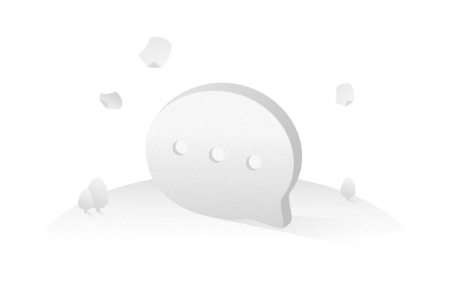1
00:00:00,800 --> 00:00:05,200
Hello everyone, today we will learn about the function menu buttons in the oscilloscope panel
2
00:00:08,133 --> 00:00:12,266
First, the panel of the oscilloscope is divided into 5 areas
3
00:00:13,166 --> 00:00:15,866
The first area is the function menu button area
4
00:00:17,400 --> 00:00:20,000
The second area is the software button area,
5
00:00:20,666 --> 00:00:24,800
and the software buttons can be operated in conjunction with each menu button
6
00:00:26,000 --> 00:00:30,300
For example, after we press the trigger setting button, in this menu,
7
00:00:30,466 --> 00:00:34,833
we can set its edge type, slope, trigger mode, etc.,
8
00:00:37,500 --> 00:00:41,833
and we can change the menu functions inside it through the software button next to it
9
00:00:42,266 --> 00:00:44,700
The third area is the vertical control area
10
00:00:46,200 --> 00:00:51,066
In this area, you can set its V per grid, the vertical position of channel 1,
11
00:00:51,333 --> 00:00:55,066
the menu of channel 1, the menu of channel 2, etc.
12
00:00:56,333 --> 00:00:59,133
The fourth area is the horizontal control area
13
00:00:59,700 --> 00:01:03,666
In this area, the time base can be adjusted through the large knob,
14
00:01:03,833 --> 00:01:07,733
and the horizontal position of the waveform can be adjusted through the small knob
15
00:01:13,100 --> 00:01:17,233
You can also press the button to quickly return the horizontal position to zero,
16
00:01:18,266 --> 00:01:22,033
and let the arrow return to the 0 position in the middle of the screen
17
00:01:23,133 --> 00:01:25,966
The fifth area belongs to the trigger control area,
18
00:01:26,166 --> 00:01:28,266
where you can set its trigger conditions
19
00:01:30,966 --> 00:01:35,533
Next, let鈥檚 learn more about the functions of the buttons and knobs in each area
20
00:01:41,066 --> 00:01:44,300
First, let's take a look at this function menu button
21
00:01:47,866 --> 00:01:50,000
In this area, the first one,
22
00:01:50,566 --> 00:01:52,166
this is the run/stop button
23
00:01:54,166 --> 00:01:58,666
When we press this button, the stop status is displayed on the screen
24
00:02:02,766 --> 00:02:06,333
In the stopped state, no waveform input is accepted, and the waveform cannot be measured,
25
00:02:06,866 --> 00:02:09,200
so we must keep it in the running state
26
00:02:10,800 --> 00:02:15,433
The second button is the automatic setting button, which we rarely use
27
00:02:20,266 --> 00:02:22,500
Usually when measuring crystal oscillators,
28
00:02:22,966 --> 00:02:29,733
when measuring some fixed frequency and fixed voltage waveforms, this automatic setting button will be used
29
00:02:32,600 --> 00:02:36,033
The third button, this is the help setting button,
30
00:02:36,500 --> 00:02:38,733
we generally don鈥檛 use this function
31
00:02:39,700 --> 00:02:43,100
The fourth button, this is the collection setting button,
32
00:02:43,666 --> 00:02:45,866
where you can set the sampling parameters
33
00:02:48,466 --> 00:02:51,666
The fifth button, this is the measurement setting button
34
00:02:51,933 --> 00:02:54,533
In this menu we can set the measurement parameters
35
00:02:55,766 --> 00:03:00,866
For example, setting average value measurement, peak-peak value measurement,
36
00:03:01,700 --> 00:03:05,800
frequency measurement, etc., can be set in this button menu
37
00:03:06,300 --> 00:03:08,900
The sixth button is the storage setting button
38
00:03:11,400 --> 00:03:15,666
You can set the waveform storage format, storage location, etc.
39
00:03:20,800 --> 00:03:24,266
The seventh button is the automatic range setting button,
40
00:03:26,300 --> 00:03:28,566
we generally do not use this function
41
00:03:29,133 --> 00:03:32,066
The eighth is a knob, which is a multi-function knob
42
00:03:32,966 --> 00:03:37,500
Through this knob you can adjust contrast, waveform brightness, etc.
43
00:03:39,966 --> 00:03:45,233
The ninth is the reference waveform setting button, this function is generally not used
44
00:03:48,533 --> 00:03:51,633
The 10th button is an auxiliary function button
45
00:03:52,233 --> 00:03:56,066
Here we can set the language, self-calibration, etc.
46
00:03:57,666 --> 00:04:00,433
The 11th button is the cursor setting button
47
00:04:02,400 --> 00:04:06,966
This cursor mode is turned off, so this button is generally rarely used
48
00:04:09,266 --> 00:04:12,866
The 12th button, this is the display settings button
49
00:04:13,266 --> 00:04:17,966
Here you can set the display type, waveform hold, contrast, etc.
50
00:04:20,033 --> 00:04:22,900
The 13th button is the default setting button
51
00:04:24,566 --> 00:04:29,300
This function is generally not used, it is the button to restore the factory settings
52
00:04:31,733 --> 00:04:34,966
The 14th button, this is the one-shot button
53
00:04:37,666 --> 00:04:42,466
After pressing this button, the oscilloscope enters the single-shot trigger mode,
54
00:04:42,633 --> 00:04:45,333
and the Ready state will be displayed on the screen
55
00:04:45,533 --> 00:04:48,566
When there is a waveform input and the waveform is collected,
56
00:04:48,733 --> 00:04:52,466
it will be in a stopped state and will not accept any waveform
57
00:04:52,966 --> 00:04:54,766
This is a one-shot function
58
00:04:56,066 --> 00:04:58,866
Ok, this is the function menu button introduction






